Hubris
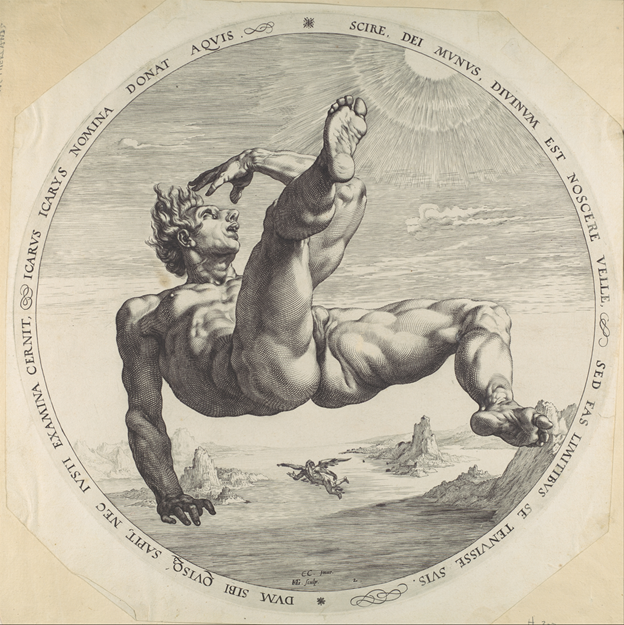
Icarus Falling
For those who have sincerely studied the Masters, there can only be an increasing humility. The ‘meetings with remarkable men’ are both inspiring and humbling. A true Master is rare, and a species of refinement rarely encountered in the mundane world. Though you might meet them as dignified gentlemen or noble ladies of unknown means and refinement, they would never fully disclose their essence. Secretive to even their most intimates, they inhabit a world of the ineffable, and thus they remain in a natural silence. If one should be allowed to study with a living adept, then these qualities become even more impressive. There is a natural manner of Being that is noble, accomplished, and fiery, like a fusion of the elementals bristling against the confines of matter itself. There are no contrived displays of erudition, no ostentatious gestures, or obnoxious validations of any kind, but an abiding benevolence that comingles with the fierceness of one who can ride a tiger. They hide in the world, concealed, secret, eremitic as the mystic anchorites of silence.
Such a one will either inspire or create a type of malignant jealousy, envy or depression. It is like the anti-Grail magician Klingsor who grows bitter because he is not worthy. Rather than doing the self-work and purification to be noble, of becoming a servant of the Grail in aiding others in the quest, he is jealous, rotten, disfigured by his own shortcomings and faults. How many will learn from these lessons that we all must face the task, the ultimatum of our soul’s existence that is the Great Work. We are to become a true Philosopher, the Magus, the righteous Grail king within the microcosm on our quest for the Immortal. We must reconcile our faults, our limitations of a karma, of our personal wyrd, our character flaws both innate and developed. It is the brutal assaying of the self, like the gold in the fire, that tell us of our purity or baseness. How much have we been corrupted, weakened, diseased of mind, body, and spirit? How much time have we wasted in anger, in folly, in sloth, laziness, and in the vices that grip and hold us down? These are moral and mortal sins not because they are punished by a god, but because they are self-inflicted sentences of the worst retribution against our Being. We are mortal, time is finite, precious and yet how many do the Work? How many stay to the Path? How many sacrifice all of the endless distractions for true intentions that persist over a lifetime? They can not even be disciplined enough to finish a text, learn a skill, to maintain a spiritual practice for any serious length of time but they think they are to be alchemists, mystics, heroes, adepts or even Gods.
Most of these sentiments, especially expressing the latter, can not even control the basics of their life. They can not escape any of the mundane aspects to have any true liberation to pursue the Work unfettered. Yet they think they are to bend fate itself and render themselves as Gods? They think they compel Gods with their kabbalistic threats and invocations? They can not master any languages, the complex techniques, the costs, and freedom of being master of one’s own time, yet they will pierce the secrets of nature? They think that their status as ‘lords of the left-hand path’ gives them license to molest, manipulate and act with such malignant and rotten natures? That their behavior is above slave morality so that they may transgress against the Gods themselves? Such is the hubris that thinks they can succeed were such luminaries and genius of the past have failed. Men of the highest intelligence, of a brilliance truly unfathomable have spent their lives trying to lift the veil on these Mysteries. Likewise, those of godlike talent, blessed by the muses in every artifice and Art, they too have been denied entrance into the walled gate. The Great Work requires the evolution of the common man to the initiated Anthropos, and the commitment of every faculty, of every atom of Being towards these Labors. It is through the Great Striving of Art and Intellect mediated by Spirit that one becomes the conduit for the divine gifts of the Gods.
Such arrogance, of course, is part of the personality of the unwashed and profane. Their ‘frivolous insolences’ have been exploited in the occult wars, as the general tendency to chaos and degeneracy is exacerbated. Those in the pagan, heathen or occult contexts exhibit such traits to truly pathological levels, operating from a worldview that nurtures such defects of character. Their desire for wanton rebellion operates under the propaganda of the Biblical faiths they deny. The fetishized notions of cruelty, of lack decency or empathy only enforces what the ecclesiastical lies told of our ancestors. The mythos and lore evidence the highest moral standards of the good, the highest code of honor and was defined by a clear sense of right and wrong, of divine retribution and a necessary sense of shame. There was the sense of the common good, of the relationships and the natural order that one should not transgress from both a supernatural level of retribution, to accountability from one’s folk, to the inner conviction of being heroic and noble of heart, and a piety to the Gods. The tasted gnosis of our own soul’s immortality demanded and demands a proper mode of being, a refinement that is worthy to house the infinite. Now we have a world that has no shame other than the shallow virtue signaling and social conditioning to weaponize the last traits of human sympathy or sense of a higher cause or purpose. There is no sense of the great overcoming of the worst in oneself, of the purge of negative and inferior traits, of degenerate and degrading qualities or habits that bind and fetter one to a failed and wasted existence. Most accept themselves, their fate, their lot in life and are resigned to celebrating their mediocrity and inferior status. Wise are those that brush the red dust of the world off and transcend their circumstances, their degraded peers, their broken families and become Golden. There is a paradox here in the provisional inner-self worth that has standards, an exclusivity and elite mode of Being in seeking one’s betters to learn and progress through their skill and wisdom. One has to have a heroic pride of the Quest that is in bounds with the cosmic order and secretive in concealing the true aims of the alchemical life.
It is the mark of the hubris and vulgar to always be entitled, and they have the constant need to be entertained. They have no respect for hierarchy, for hard work that earns rewards, so they are constantly complaining and being a victim who has no regard for those that do Herculean tasks with disciplined effort. They crave a debauched luxury, not of any refined hedonistic delights, but of the worst decadence, the soul rotting shallow artificial modes of pleasure that are never of any substance, or worth. These are indulgences that poison the health, the spirit, they are traps in the guise of treats the ensnare and hold them. It creates a shallow person incapable of concentration, of setting and achieving goals, of training the brain to feel pleasure in overcoming hard tasks, and eschewing the dopamine rewards of trivial forms of stimulation. It is a downward spiral of inferior people that have become a critical mass and who have been unleashed upon society with corporate, government and media as accomplices.
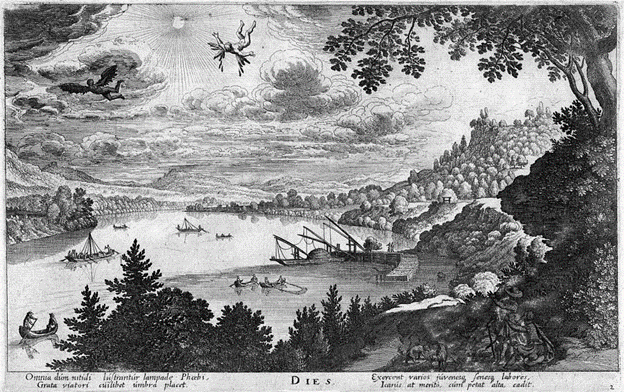
The true alchemy, the opus alchemicum, is the transmuting of the beast and man into the Immortal. “Naive men think that by ill-treating others they make their own superiority the greater” and many confuse revenge with taking pleasure in humiliation, pain, and suffering. We might define a real person of manners, a noble lady or gentleman, as someone who is kind and respectful even to people with whom there is no obligation such as those below their rank, subordinates, strangers or with those they disagree. The mark of true refinement is self-control, in mastery of our actions, in the proper response (responsibility) and staying within a standard and ethos of what is honorable and just. Hubris guards our humanity and prepares us for divinity, even though these terms are weighted with Christian theological baggage. It is the Christians who stole and warped what true piety to the Gods meant, and claim the moral authority already developed and articulated by our pagan philosophers. We mean of the realm of the Gods, of the superior invisible source of light, the numinous and astral domain beyond the abyss. It is from this divine inspiration that the messenger of the Gods alights in dreams, in piercing insights, in visionary rites of the light beheld in chthonic depths. Some think that the forces they seek to conjure for will spare them in its parasitic devouring. They will learn too late as all is consumed around them. For some it takes great pain, humiliation, anguish, exile, illness, betrayal, a lover’s death or suicide, to learn these lessons. Some will only awaken to the horror in the dramatic irony the old tragedies taught of the sudden reversal of fortune. Some will only know its truth upon a deeper incarceration, or an incapacitating injury, a terminal disease, some will only glimpse it in the flicker of insight that sparks right before Death.
Some other examples of hubris are of excessive boasting, especially in sacred or divine matters, or one’s beauty or power. If one is to brag about the good deeds or actions one intends to do, then make sure they are accomplished in due order. To set goals and to leave them unfinished is a worse offense, and a crippling aspect of one’s spiritual and magical integrity. Failing to do what is necessary, to shirk duty, to neglect those in one’s care is hubris and the toxic selfishness that rots all of life from the home, to community, to the nation and world. To think one can fool the Gods and outwit fate by tricks are also common themes of hubris that causes retribution and dire consequences. Here there is the fine line between the praise of glory and a cunning wisdom that solves problems but one that retains honor and does not denigrate us through actions unbefitting Immortals. A destructive ambition, an unwillingness to learn from the past, a denial of the sacred, transgressing decency, abominations, sexual crimes, a certain arrogance and lack of manners, a superiority complex all are subtle enemies that destroy the work. As such we walk the fine line of elitist and humbled. Elitism is in those who make great striving through disciplines that last a lifetime. Such a one can only develop an authentic humility beholding the infinite and a respect for all of this higher order. This is the honor of recognizing greatness, of accepting if one is superior in being honest with one’s own faults, limitations and flaws. It is only through doing so that we evolve into Masters, divesting ourselves of the inferior traits, worldview and disposition that limit us to a mundane or common existence. This process of refinement removes the excess matter to realize the idol of the God within the stone. We contrast to Masonry which seeks to make a person a brick in their temple, whereas we seek to reveal the divinity within the unhewn stone of one’s self. It is only through empowered Mastery that one has a true strength and vantage point for mercy, compassion and empathy of which are the most noble sentiments of humanity.
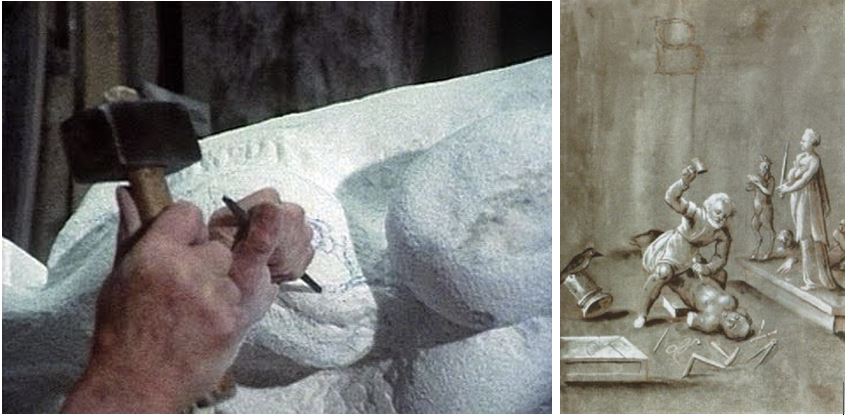
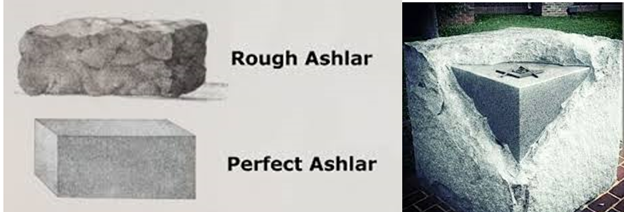
The study of the heroes contain the bitter paradox of seeking glory and transgressing the noetic world, the realm of Being (or Being, Life, and Intelligence); just as the Magus, the Faustian spirit motivates us to pierce the Veil of hidden or forbidden knowledge. The mythos provide the Master Narrative to navigate these treacherous waters that flow of the abyss and the moral compass of conduct worthy of apotheosis. The initiates are Telestai, “those who are aimed.” Like other concepts of ‘sin’, the term hamartia derives from the Greek ἁμαρτία, from ἁμαρτάνειν hamartánein, which means “to miss the mark” or “to err.” “The hamartia of being compelled to unknown ends to the suffering of ironic reversal of fortunes, the peripeteia and the anagnorsis, the profound realization… fate, the will of the gods is a metaphor for the workings of both those social and natural forces beyond our personal control and the inescapable elements of our own psyches — our own selves that both make us heroic and tragic, and thus make us beautiful.” Here is a lesson for those balancing the inner Hermit’s path of alchemist and Magus but have obligations to folk, to kindred, to clients. Our work must be balanced, we must not sacrifice the nurturing of the essential aspects of our humanity in how we treat those we love or that love us, or that depend on us. Only though such understanding can there be a community and domain healthy and sacred enough to do the great work. Unless one is of extreme great wealth and means, there has to be the planning, strategy, the cooperation to build with others. Even in the hermitage we rely upon others to prosecute the daily tasks that intrude upon us from governments like taxes, and other financial concerns it is impossible to escape. It requires a cooperative spirit, such was the key to frith in the North, to endure and survive in extreme conditions. We are facing such extremes that will only increase as the mortar of society crumbles. We seek those who understand this worldview as allies to survive, to Endure.
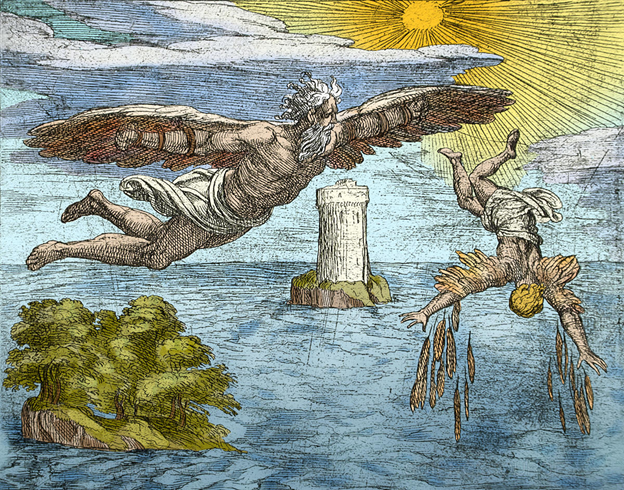
We entrap the lower self in a labyrinth of our own cunning, and yet we must escape that to our immortal return. The feathered immortal, the winged-soul is allowed to fly, it is just a question of proper altitude for one’s station. We cannot transgress the cosmic order or there are consequences. This is the hubris of modern science which thinks it is superior to Nature, and that they can patent, interfere and experiment with biology on a genetic level, trying to act like the Gods. They have their golem of silicon and artificial intelligence, of synthetic entheogens, genetic modification, virtual immortality through transhumanism all of which are the inversion of Tradition and a false, anti-Grail form of degenerate alchemy.
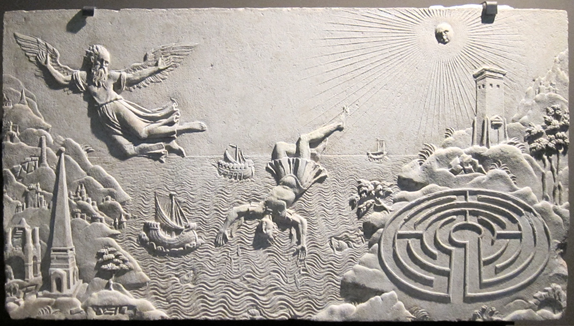

Nemesis, winged balancer of life, dark-faced goddess, daughter of Justice
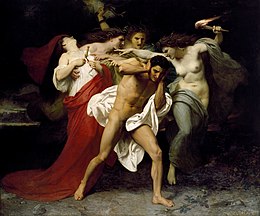
The Erinyes were three female goddesses, seeking vengeance against anyone who had sworn a false oath or had done an evil act. The role of the Erinyes was to tantalise anyone who committed crimes, or hubris (insolence against the gods).
For those seeking to Work within an invisible college of esoteric research, contact us and purchase this publication to support our Mission.
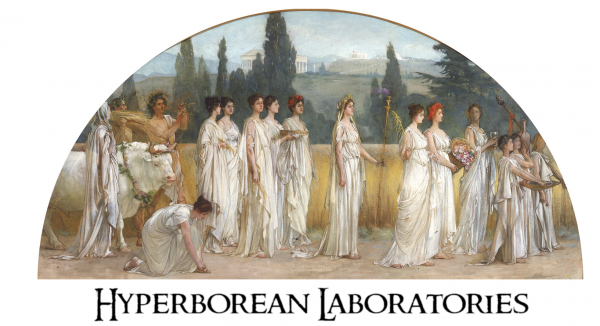
Comments are Disabled